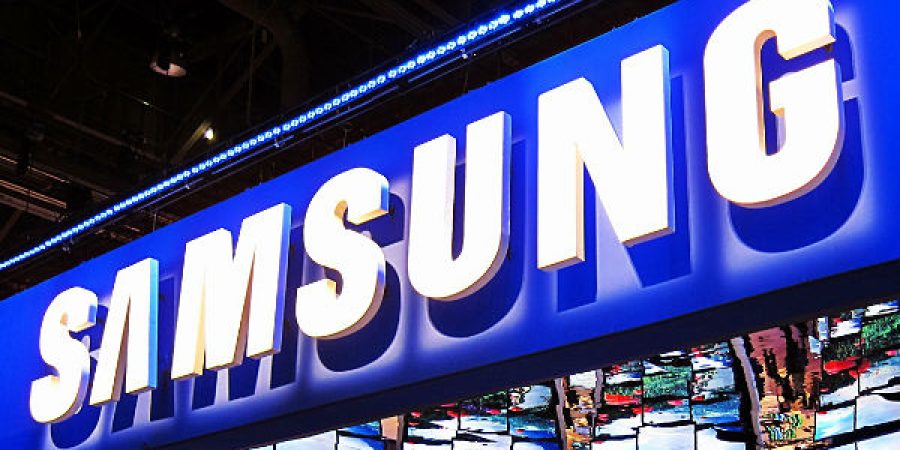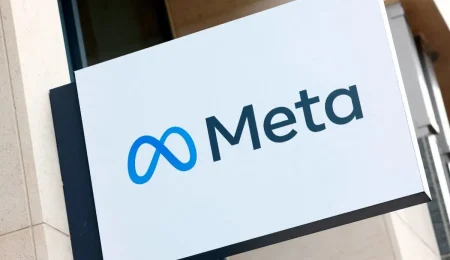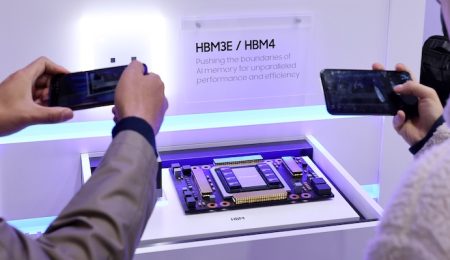Samsung Electronics has projected a 56% year-on-year plunge in second-quarter operating profit, far worse than market expectations, as weak sales of artificial intelligence (AI) chips deepen concerns over the tech giant’s ability to revive its struggling semiconductor business.
The world’s largest memory chipmaker blamed the sharp fall in profits on United States export restrictions on advanced AI chips bound for China. However, analysts said the decline was also linked to delays in supplying high-bandwidth memory (HBM) chips to key US customer Nvidia.
In March, Samsung had flagged that meaningful progress on its latest HBM 3E 12-layer chips could come as early as June. On Tuesday, however, the company offered no update on supply to Nvidia, saying only that its improved HBM products were undergoing customer evaluation and that shipments were proceeding.
Samsung’s key rivals, including SK Hynix and Micron, have benefited from robust demand for memory chips driven by the AI boom in the US. In contrast, Samsung remains more reliant on the Chinese market, where advanced chip sales face growing restrictions from Washington and rising competition from local players.
“For Samsung Electronics, the key issue remains regaining competitiveness. Everything ultimately comes back to HBM,” said Ryu Young-ho, senior analyst at NH Investment & Securities.
Potential US tariffs are also clouding the outlook for Samsung’s core chip and smartphone businesses, increasing pressure on profit margins.
“It will also be difficult to raise prices immediately due to competition, making it challenging to sustain high margins,” Ryu added.
Samsung estimated an operating profit of 4.6 trillion won (£2.63 billion) for the April to June period, well below the 6.2 trillion won forecast by LSEG SmartEstimate. That figure would mark the company’s weakest quarterly performance in six quarters, down from 10.4 trillion won a year earlier and 6.7 trillion won in the previous quarter.
Revenue is expected to dip slightly, falling 0.1% to 74 trillion won compared to the same period last year, according to the company’s filing.
Samsung attributed the sharp decline in chip profits in part to inventory value adjustments but did not elaborate. Analysts said unsold HBM chips intended for Nvidia may have contributed to substantial inventory write downs.
They estimated the chip division’s operating profit could fall to around 500 billion won—more than 90% lower than a year earlier—although profits from the company’s smartphone business may have improved over the same period.
Shares in Samsung Electronics slipped 0.2% on Tuesday, even as the benchmark KOSPI index rose 1.2% as of 0341 GMT.
In an effort to shore up investor confidence, Samsung announced it would proceed with a share buyback worth 3.9 trillion won (£2.23 billion), as part of the broader 10 trillion won buyback programme unveiled in November last year.
Analysts said they expect Samsung’s profits to recover gradually, helped by the launch of new smartphones and rising sales of HBM chips to non-Nvidia customers.
Samsung also confirmed that earnings in its foundry business had declined, citing US export controls on advanced AI chips for China, sales restrictions, and related inventory value adjustments. Continued low utilisation rates further weighed on the division’s performance.
Nevertheless, the company expressed cautious optimism for the second half of the year, predicting that the operating loss in its foundry business would narrow as utilisation rates improve alongside a gradual recovery in demand.
Samsung is scheduled to release detailed earnings, including a breakdown of performance by business division, on 31 July.
Boluwatife Enome
Follow us on:



